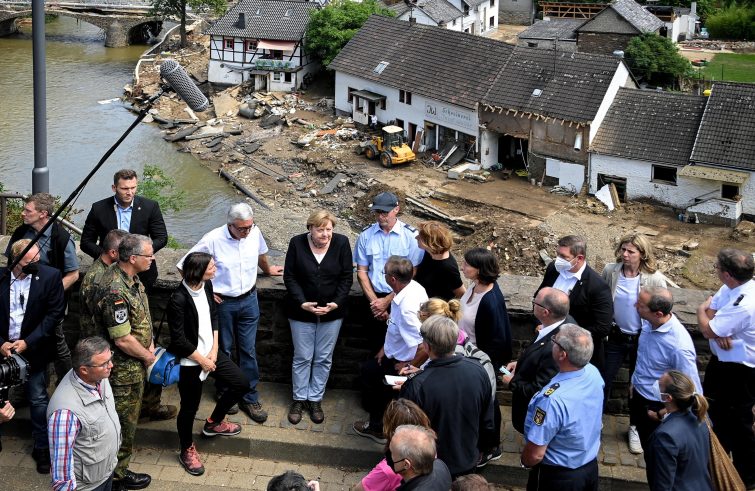
In the disaster-stricken area of Ahrweiler (Rhineland-Palatinate), in the Aurina valley, a temporary shelter has been set up by the Bad Neuenahr-Ahrweiler pastoral care unit (Trier diocese), comprising three parish communities, to house all those seeking help, support and counselling. People are searching for missing relatives that have not been confirmed dead. Johanna Becker is among the pastoral workers on the spot. Born in 1992, Johanna is a pastoral assistant, in charge of youth ministry in the deanery. SIR contacted her by phone. Voices and lorries passing by are heard in the background.
There is time for a few questions, often interrupted, because there is too much to be done;
Johanna Becker apologises for the interruptions but is happy to answer because “it’s important for people to know what we are going through.”
How is the situation in the area now?
Six days have passed since the disaster and cleanup operations are still ongoing, emptying cellars and rooms from the water, rescuing people, while basic health care, electricity and transport infrastructure remain inadequate. Sewerage and drinking water pipes are damaged, but water is being supplied by alternative means.
What are the priorities?
Every day has its priorities.
But surely the first step is to remove everything.
We have tents packed with donated items, but nothing can be taken as yet, for items cannot be brought into people’s homes. There is plenty of food, but nobody can cook. So the cleanup has to continue, and it will take a long time.
How is the general atmosphere, people’s mood?
The widespread attitude is “we will make it.”
There has been a beautiful show of solidarity, people are helping and staying close to each other,
along with widespread patience and understanding, without trying to justify anything, but obviously there is also great suffering. Every household has had a death in the family or knew one of the deceased.
Can funerals be celebrated?
No. And it’s a great problem. It has not been possible up to now, also because we still don’t know which cemeteries are accessible.
How do you approach people?
Many of them are coming to us, to the temporary shelter we set up, or we go out into the streets to talk to people.
What are the prevailing emotions?
There is a widespread feeling of despair, because of the situation and the failure to do everything possible. One person told me she had not managed to help her neighbour.
The pain is overwhelming, it’s a very difficult situation.
Are there times when people come together to pray, to celebrate Mass?
Yesterday was a Sunday, we offered the opportunity to celebrate Mass, but only a few participated, although with great gratitude.
I think that at the moment people find it hard to stay still.
It would unleash all sorts of painful emotions they are not yet ready to cope with. The faithful who attended yesterday were grateful. We prayed also on behalf of those who are still struggling. Many are also asking “why did this happen to us?”.
Has the visit of Chancellor Merkel on Sunday been a meaningful event?
It has. It is very important for people to see that political leaders assess the situation and identify the areas requiring financial assistance.
Are you receiving support from other Catholic communities in Germany?
Yes, very much so. Our diocese in particular is very supportive. Bishop Stephan Ackermann visited us on Sunday. We are in close contact with the diocese, they are very responsive and supportive.
What does it mean to be hopeful there at this time?
Above all, it means to live. It means living with tremendous gratitude for having survived in solidarity, being together and helping each other.









